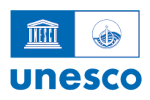News
EPOS launches the European Portal for Open and Integrated Access to Multidisciplinary Scientific Earth Data
Added on 2023-04-27 14:53:37 by Vanhoorne, Bart
The platform "EPOS Data Portal" will be presented at the EGU General Assembly 2023 and will allow scientists, students and stakeholders to access multidisciplinary scientific data and products for understanding Earth dynamicsAfter more than 20 years of research and innovation, on 25 April EPOS (European Plate Observing System), the European research infrastructure for solid Earth science, will officially present its Data Portal to the scientific community which will gather in Vienna and online for the annual General Assembly of the European Geosciences Union 2023 (EGU23).
Born in 2007 with the aim of developing a long-term integration plan for sharing scientific data and products, EPOS has integrated around 150 national research organizations from 25 European countries into a single distributed infrastructure. In 2018 EPOS obtained the legal status of ERIC (European Research Infrastructure Consortium) from the European Commission.
“The EPOS vision is to promote open science by sharing multidisciplinary solid Earth science data and products to foster research and innovation; this has guided us in the creation of the Data Portal that we will present on 25 April in Vienna”, explains Lilli Freda, Executive Director of EPOS ERIC.
“The unprecedented amount of data, products and services made available by the EPOS Data Portal for a large spectrum of users (scientific community, institutions, political decision-makers) promotes the progress of research for a better understanding of the physical and chemical processes governing natural phenomena of the Earth system such as earthquakes, volcanic eruptions, and tsunamis.
“EPOS is the first and only European research infrastructure for solid Earth science”, continues Freda, “and it will help not only researchers, but also national governments in identifying tools for the mitigation of natural hazards, as well as promoting investments in research and innovation”.
EPOS Data Portal is the result of collective work. Over the last twenty years, an international team of about 600 experts has worked in synergy on the integration and harmonization of over 60 types of metadata from the various disciplines that make up the solid Earth sciences enabling interoperability.
Participants of the EGU General Assembly will be able to see the results of this commitment by visiting the EPOS stand, using the Data Portal and attending the presentation of case studies developed by young researchers.
The Sea Level Station Monitoring Facility is included via the The candidate Thematic Core Service (cTCS) in the EPOS dataportal.
Born in 2007 with the aim of developing a long-term integration plan for sharing scientific data and products, EPOS has integrated around 150 national research organizations from 25 European countries into a single distributed infrastructure. In 2018 EPOS obtained the legal status of ERIC (European Research Infrastructure Consortium) from the European Commission.
“The EPOS vision is to promote open science by sharing multidisciplinary solid Earth science data and products to foster research and innovation; this has guided us in the creation of the Data Portal that we will present on 25 April in Vienna”, explains Lilli Freda, Executive Director of EPOS ERIC.
“The unprecedented amount of data, products and services made available by the EPOS Data Portal for a large spectrum of users (scientific community, institutions, political decision-makers) promotes the progress of research for a better understanding of the physical and chemical processes governing natural phenomena of the Earth system such as earthquakes, volcanic eruptions, and tsunamis.
“EPOS is the first and only European research infrastructure for solid Earth science”, continues Freda, “and it will help not only researchers, but also national governments in identifying tools for the mitigation of natural hazards, as well as promoting investments in research and innovation”.
EPOS Data Portal is the result of collective work. Over the last twenty years, an international team of about 600 experts has worked in synergy on the integration and harmonization of over 60 types of metadata from the various disciplines that make up the solid Earth sciences enabling interoperability.
Participants of the EGU General Assembly will be able to see the results of this commitment by visiting the EPOS stand, using the Data Portal and attending the presentation of case studies developed by young researchers.
The Sea Level Station Monitoring Facility is included via the The candidate Thematic Core Service (cTCS) in the EPOS dataportal.
[Overview]
